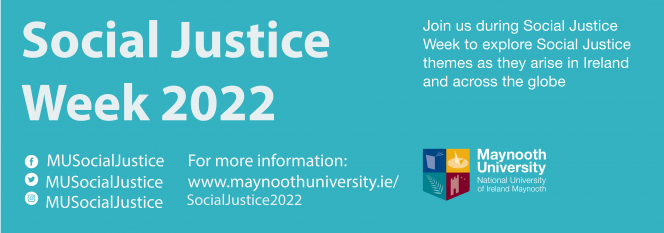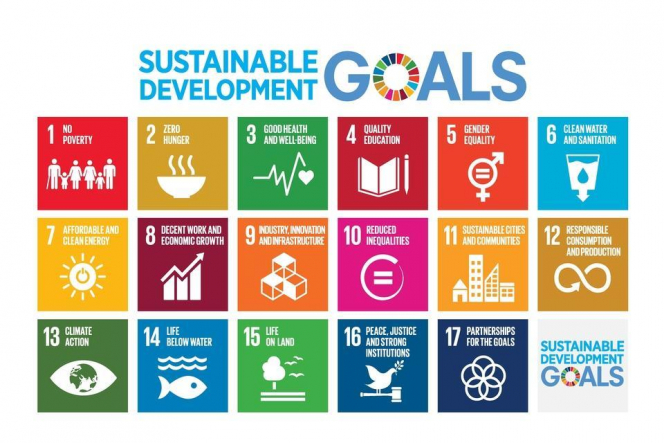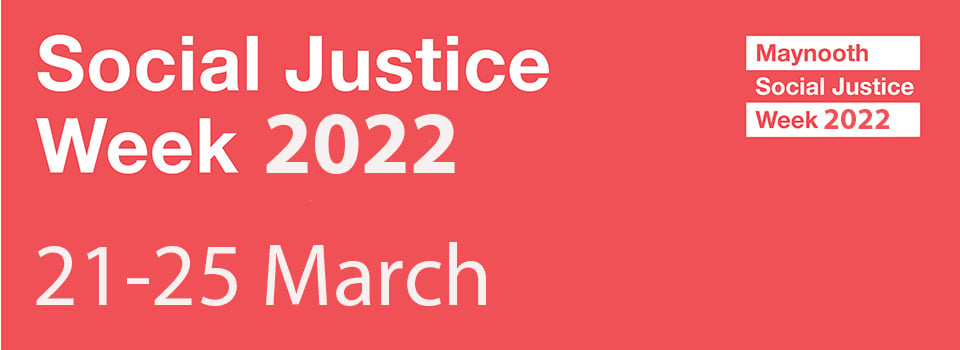| Time |
Details |
Venue |
| 9 - 10 am |
Trauma Informed Leadership in Education; An Action Research Study- Implementing a whole school approach to Trauma Informed Approaches In Inner City Dublin
Speakers: Deirdre Forde (Froebel Department of Primary and Early Childhood Education), Eilis Meaghar and Catriona O'Toole (Department of Education)
Overview:
Education is rightly presented in mainstream discourses as a positive force, leading to a more peaceful and productive world. While education is an empowering force , the systems of education should be critically considered. The national wellbeing policy statement and framework for practice, positions schools, as vital, in promoting children’s wellbeing (DES 2018). In light of this policy, a primary recommendation is that teachers need to be equipped with the knowledge and skills required to support children who may be traumatised or experiencing adversity. Schools and teachers are supporting children with cognitive, social, emotional impairments, behavioural difficulties, impulse control, low self-esteem and emotion dysregulation (Copeland, Keeler, Angold, & Costello, 2007) with little guidance or training in doing so. There is a significant absence of Irish based research in this field, Delaney (2020). One Principal recognised how marginalised communities are at greater risk of experiencing ACEs (Adams, 2010), particularly her own school community and implemented whole school staff training in Trauma Informed Approaches. She is joining MU during social justice week to share her research story.
Venue: This event will take place online. Please click here to join this EVENT
|
Online |
| 10-11 am |
Virtual Coffee Morning of the Enable Network for Staff with Disabilities and Chronic Conditions in Maynooth University
Speakers: Co-hosted by Sam Blanckensee (Office of the Vice President for Equality & Diversity) and Dr Rebecca Maguire (Department of Psychology; Assisting Living and Learning Institute)
Overview:
The Enable Network was recently formed to support Maynooth University staff who are living with disabilities and/or chronic health conditions. This network provides staff with the opportunity to meet with other staff members with disabilities and to discuss what it is like to be a person with a disability at Maynooth University. In this virtual coffee morning, we would like to raise the visibility of our network, and in particular to welcome new members to join. We also welcome anyone who has an interest in creating a disability-friendly Maynooth University. This will be an informal session where attendees can share their experiences of living with a disability and chronic illness, including how these experiences have been shaped by the COVID-19 pandemic.
This event is open to all.
To join this event, please click: Enable Network for Staff Virtual Coffee
|
Online |
| 10 - 11 am |
Workshop on An Augmented Reality app exploring space and satellites to explore and address climate action, sustainable cities and other Sustainable Development Goals.
Speaker: With Jonathan Faull (Department of Geography)
Overview:
In this workshop, we introduce SatelliteSkill5, a free Augmented Reality (AR) app for iOS and Android that introduces space, satellites and Earth observation data to users and see how they can be used to address Sustainable Development Goals (SDGs). In particular; how satellites work, explore the data, they make and see how they can be used in different applications that help meet SDGs, including – water, health, climate change, security. This app provides an immersive and interactive set of challenges that brings an active approach to learning where users must take charge in solving problems around Ireland in a gamified environment. Augmented Reality provides an excellent tool for teaching and learning about complex space and informational data in a fun, intuitive and interesting way.
Once completing the SDG challenges, users unlock free data that you can use in ArcGIS Online to make your own storymaps including real-world data. ArcGIS Online is an accessible and simple way to use the industry standard software for mapping the world for all different purposes, ArcGIS. We welcome all to this exciting workshop to learn more about how satellites and earth observation can address the Sustainable Development Goals
Our SFI and ESERO project “5*S – Space, Surveyors and Students: STEM and the Sustainable Development Goals” works to make space and satellite data accessible to people of all ages and skills. Join us to find how can start the conversation! More information at: https://5sdiscover.maynoothuniversity.ie/
|
Roque Lab, Rhetoric Building (Ground Floor) |
| 11 am - 12.30 pm |
Workshop on Storymapping space to address Sustainable Development Goals.
Speaker: Dr Sasha Brown (Department of Geography)
Overview:
This workshop is on how to make your own storymaps turning satellite earth observation data into stories. The UN Sustainable Development Goals (SDGs) like ending world hunger, sustainable cities and taking the actions needed to address climate may seem large and unapproachable. In this workshop, you will learn how to explore and communicate directly from spatial data ways to address SDGs in the world, in Ireland and in all kinds of communities.
Join us in an introduction to making StoryMaps using ArcGIS Online – ArcGIS is an industry standard software for analysing and communicating spatial data, whether in maps, animations, web stories and more, and storymaps create an exciting, innovative, engaging, and accessible ways to turn the data of our world into stories.
This workshop will draw from the 14 Fundamental Geospatial Data Themes that the UN has identified as crucial in assessing and overcoming obstacles to achieving the Sustainable Development Goals. You will be given an account at ArcGIS Online and create your own storymaps around a chosen issue in your community or issue of your interest. Storymaps bring together a range of media sources, based around exploring and mapping issues of importance, and allow for exciting and engaging narratives to present data.
Our SFI and ESERO project “5*S – Space, Surveyors and Students: STEM and the Sustainable Development Goals” works to make space and satellite data accessible to people of all ages and skills. Join us to find how can start the conversation! More information at: https://5sdiscover.maynoothuniversity.ie/
|
Physical Geography Lab, Rhetoric Building (Ground Floor) |
| 11 am - 1 pm |
Neurodiversity in a Neurotypical World
Speaker: Deirdre Forde (Froebel Department of Primary and Early Childhood Education) in conjunction with an Autism Service and self-advocates
Overview:
With the mobilization of a neurodiverse model of disability, comes the hope of a new public education for children with Special Educational Needs. The Neurodiversity model is a radically different model of practice and an antidote to the medical model. It aims to empower neurodivergent children by accepting and celebrating their differences in thinking, feeling and communicating and not attempting to change them or shape them into meeting ‘neuromajority’ norms. It was founded by Autistic self-advocators. The Neurodiversity movement has the potential to contribute to the field of Special Education in Ireland as it has the propensity to mobilise disability discourse to a diversity discourse.
Join us for an interactive session.
|
SE001 (School of Education Building) |
| 12 noon - 1.30 pm |
Different shades of Black: Inequities and barriers Blacks encounter in their Higher Education journey – What can teachers do?
Speaker: Lilian Nwanze (Department of Adult and Community Education)
Overview:
An interactive seminar/workshop open to students and teachers where the barriers Black people face in (Higher) Education will be explored. This seminar will be facilitated by Lilian Nwanze, a Doctoral Student in the Department of Adult and Community Education.
|
SE235 (School of Education Building) |
| 12 noon |
Do Witches Have Human Rights?
Speaker: Dr. Thomas Strong
Overview:
A remarkable shift has occurred in how we talk about witchcraft and sorcery.
Whereas these topics have long occasioned critical reflection on belief and reason, or cultural difference and human universals, the new discourse describes witchcraft as a “human rights” problem and focuses on harms associated with it. This shift reflects the influence of a number of actors in both national and international settings, actors working with institutions of global governance to pressure national states to develop coherent legislative and social responses to witchcraft violence.In September 2017, the United Nations Human Rights Commissioner convened its first ever expert workshop on witchcraft and human rights in Geneva. A year later, the UN curated an exhibit of photographs about witchcraft directly outside the The Human Rights and Alliance of Civilisations Room in the Palais des Nations where the expert panel had convened. This week we discuss challenges of advocacy, representation and rights focusing on this small exhibit and its imagery. We highlight the ways in which its representational sensibility symbolises the shift from ‘belief’ to ‘harm’ as the dominant topos shaping the intelligibility of witchcraft as a social phenomenon. When articulated in the context of human rights discourse, “witchcraft” requires not so much understanding, as witnessing. Thus, we consider the ways in which the photographs not only construct ‘victims,’ but also ‘witnesses.’ They depict bodies that ‘testify’ to their own suffering and survival, imagery which provokes a sense of moral responsibility in those who see it. Drawing on fieldwork in highland Papua New Guinea, I also reflect on what the photographs can’t show: witchcraft itself. I describe some of the moral and epistemological challenges of representing and responding to witchcraft phenomena, returning to the aporia contained within this question: Do witches have human rights?
If you would like to view this lecture virtually, please email [email protected]
|
SLT (Callan Building) and Online |
| 1 - 2 pm |
Shifting Perspectives - From North-South to the Global in Global Citizenship Education
Speakers: Dr. Eilish Dillon (Department of International Development), Laura Thornton (Froebel Department of Early Childhood and Primary Education),
Aoife Titley (Froebel Department of Early Childhood and Primary Education).
Overview:
This seminar will explore the implications of shifting from a 'North-South' to a 'Global' focus in global citizenship education. How can we do critical education in a way which engages people in Ireland more actively in shaping a better world for everyone? What does it mean to think beyond charity and helping others in the global South to embracing our collective roles, responsibilities and complicities in relation to global inequality and injustice? Can a global focus help us to teach and learn for a more sustainable, inclusive and hopeful future?
To register for this event, please see: www.eventbrite.ie/e/shifting-perspectives-from-north-south-to-the-global-in-gce-tickets-272039346007
|
Online |
| 1-2.30 pm |
Precarious working lives: What can be done?
Speakers: Miriam Hamilton (Irish Federation of University Teachers) and Dr Jerry O’Neill (School of Education)
Overview:
Miriam Hamilton from IFUT and Jerry O’Neill from Maynooth University will co-facilitate a session which will explore the experiences of precarious university working lives. Drawing on some narrative fragments of research which Jerry has conducted with his colleague Dr Camilla Fitzsimons, the workshop will seek to explore participants’ shared perspectives on the various impacts of precarity not just on their working lives but also on institutional capacity for sustainable growth. The praxis-orientated workshop will conclude by reflecting upon what can be done to confront this great challenge of contemporary working lives.
|
CB8 (Callan Building) |
| 1 pm |
Catching our breath: a mindful climate justice walk
Organised by: Social policy students taking SP310 Climate, Environment & Social Justice, with Dr Jamie Gorman (Department of Applied Social Studies).
Overview:
Across much of the global North, society is out of balance and had created the unfolding climate and biodiversity crises. So how do we centre ourselves again and begin to act in ways which align to climate and ecological justice? We’ve got to start with catching our breath. Join us for a mindful walk as we visit the campus community garden, hear the poems of Ken Saro Wiwa and connect more deeply to our breath and the natural world in the campus apple orchard. Reconnecting with these resources can help us to clarify what’s truly important – and what needs to change for climate justice and sustainable development to be a reality.
Venue: The meeting point for this walk is the green between John Hume and the Arts Building
|
|
| 1 - 2.30 pm |
Working To Highlight Housing Injustice: ‘Multi story’ creative engagement for housing change
Speakers: Trish Brennan (Department of Applied Social Studies) in conjunction with Housing Action Network (HAN).
Overview:
HAN is a collective of community workers, researchers, activists and artists concerned with the growing housing crisis in Ireland. Following an 18 month engagement, supported by Create (the national development agency for collaborative arts) which saw artists, activists, community workers and tenants – public and private, engage in a unique collaborative arts process exploring diverse experiences of the housing crisis through visual and performative storytelling.
A 10 minute film entitled ‘THE APOLOGY’ has been the outcome of this work and is a hard hitting comment on the homeless/housing situation in Ireland. Performed in monologue form by Paula Kearney a recent graduate of the Department of Applied Social Studies.
This event includes a film screening, followed by conversations led by a panel of housing activists.
Venue: Training Room D in the Library - follow the signs
|
Training Room D in the Library |
| 2.30 - 4.30 pm |
Working against Poverty: Issues, Strategies & Campaigns: A practitioner-led skills session for community work and youth work students
Speakers: Dr Marianne O’Shea (Department of Applied Social Studies) in conjunction with the European Anti-Poverty Network (EAPN) Ireland
Overview:
As ever more communities and young people across the country are struggling to deal with skyrocketing living costs, Paul Ginnell, Director EAPN Ireland will lead an interactive workshop highlighting some of key issues facing those living in persistent poverty in Ireland, strategies to engage with communities and young people on these issues and some ongoing campaigns to address these challenges.
EAPN Ireland is a network of anti-poverty groups working to put the eradication of poverty at the top of the EU and Irish agenda through information, training, advocacy and networking.
Venue: This event will take place on campus and is scheduled for final year student of the B. Soc. Sci. Community Work & Youth Work. There is limited space for additional attendees to join. Please contact [email protected] to register your interest in attending.
|
TBC |
| 3 pm |
Workshop on Gender-based violence
Speaker: Dr Camilla Fitzsimons (School of Education)
Overview:
This interactive workshop is about the spectrum of gendered-violence, mostly men’s violence against women but also state violence. Participants will be invited to actively participate in a discussion where, together we will contemplate the causes of gender based violence, its consequences, and possible ways of eradication. This workshop explores the limitations of a ‘law and order response’ arguing this can often make things worse rather than better for those a the centre of this phenomenon. It presents a case study of the Dublin 15/Dublin 7 Action against Gender-based Violence Campaign which was launched in 2019. Attendees will be invited to share their own thoughts and experiences as much or as little as they wish. You can come along and just listen or come along and take part in what I hope will be a feminist infused, call to action.
Trigger warning: this workshop invites active participation.
Venue: This event takes place on Zoom. The meeting link is: Gender-based violence Workshop
|
Online |
| 4 pm |
Removing the Stigma: The journey of a self-advocate with Dyslexia in the Irish Education System
Speakers: Deirdre Forde (Froebel Department of Primary and Early Childhood Education) and Caoimhe O' Malley (Dyslexia Association of Ireland)
Overview:
A Self Advocate with Dyslexia shares her educational experience with honesty and insight.
Venue: This event will take place teams. Please click here to join the EVENT.
|
Online |
| 6 pm |
Contemporary Issues in Migration and Human Rights
Speaker: Dr Clíodhna Murphy (School of Law and Criminology)
This event is organised by MU Free Legal Advice Centre Society.
|
CB1 (Callan Building) |
| 7-9 pm |
Ambition2Action: Transforming innovation and industry
Organised by: MU Business Society
Speakers: Dr Duncan Casey (Director of Maynooth Works), Ali Sheridan (Sustainability and climate advisor, and PhD candidate)
Overview:
This fireside like chat event will feature topics on the role of higher education in innovation, how SME’s achieve sustainability and why it matters in the world of business and how we can meet the goals of SDG9 (Industry, Innovation and Infrastructure).
This event is open and has no registration requirement
|
CB8 (Callan Building) |



